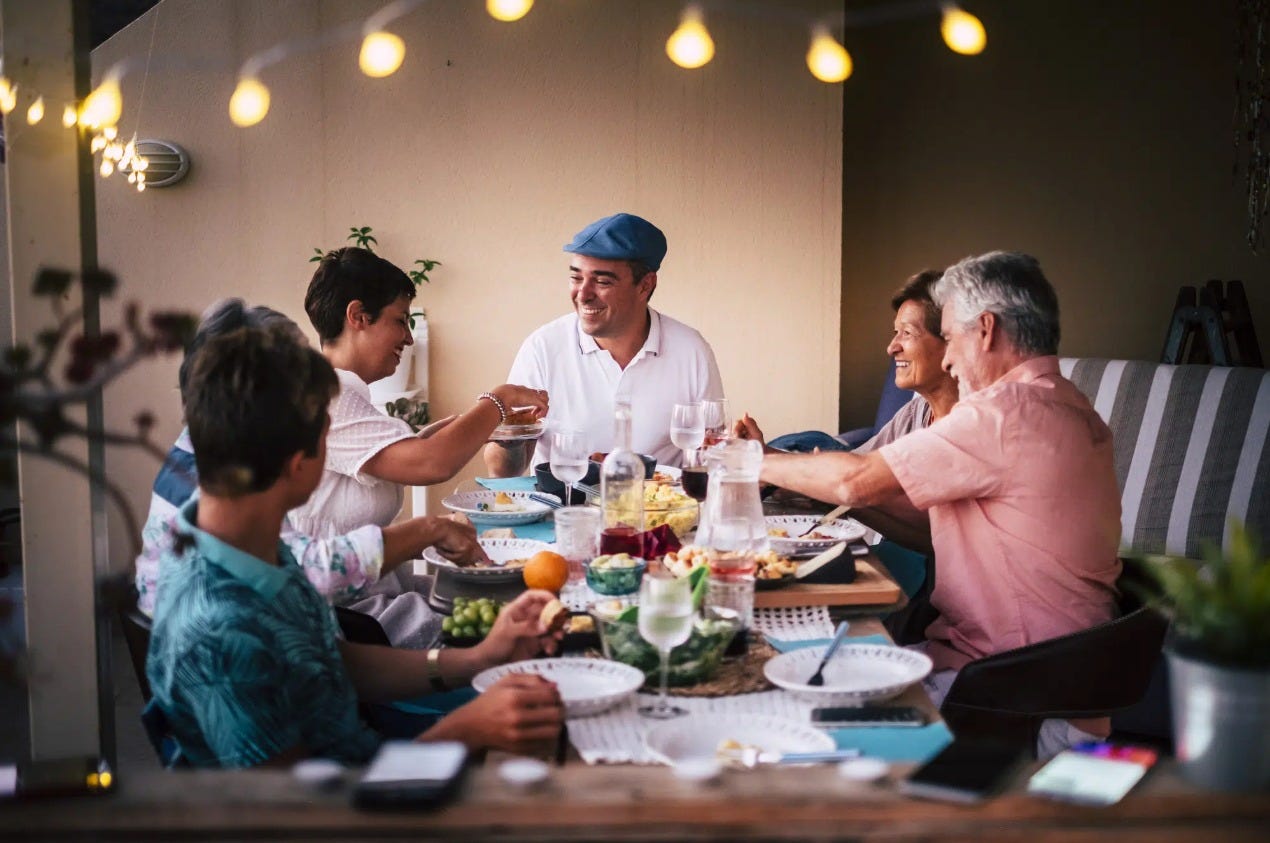Small Talk at Holidays
This time of year, many of us gather around tables that aren’t our own—we are invited into someone else’s home, their traditions, their way of doing things. Maybe it’s Passover, Easter, or a spring dinner with friends.
Perhaps the prayers sound different than yours. Maybe you’re unsure what to bring: wine, dessert, or just your best manners.
In these moments, small talk can feel… well, small. But it doesn’t have to.
Small talk is often the doorway to connection. It gets a bad rap, but when done with intention, it can create space for trust, laughter, and even healing. And when we show up to a holiday gathering—especially one rooted in culture or faith that’s not our own—small talk is how we show interest, curiosity, and respect.
Recently, I attended an event where small talk was used well by asking light-hearted questions first. Think of it as the warm-up comedian before the headliner.
These included a speed round of people answering:
Are you a morning or night person?
Vacation preferences: Cultural or Playtime; Mountains or Beach
Are you a cat or dog person?
I recently read a study that found people hesitate to ask deeper questions because they fear awkwardness. But here’s the truth: people love it when you ask something real. They feel seen. Valued. And it often leads to beautiful, honest dialogue.
So the next time you’re unsure of what to say, try this:
“What are you looking forward to this spring season?”
“How did your family start celebrating this tradition?”
“What part of this holiday means the most to you?”
“Is there a dish you look forward to every year?”
These open-ended questions invite stories. They create bridges. And they work just as well at a dinner table as they do in a meeting or networking event.
Whether it’s personal or professional, connection starts with curiosity.
This spring, whether you’re dipping parsley in salt water or hiding plastic eggs, remember: it’s not just about what you say—it’s about how you listen, what you learn, and how you make others feel along the way.
Here are some bonus tips:
If you’re hosting, let people know how to maximize the experience at your home. For example, my home is “shoe free”—I ask people to take off their shoes (I learned this early when living in Asia as a child). Not everyone is comfortable with this, so I have a basket of socks readily available.
What does ‘casual’ mean as far as dress code? Share your expectations.
During the meal, consider inviting guests to put their phones away. Start with some of the light-hearted conversation starters noted above.
If you have pets, let guests know ahead of time so they can take allergy medication if needed.
If you’re a guest, ask detailed questions so you can prepare accordingly. Ideally, put your phone away for the entire time you are in their home. When I say away, I mean off with no notifications buzzing in your pocket.
I know this feels uncomfortable, but it sends a message that your attention is on the meal and your guest’s home.
Offer to help—maybe it’s bringing dishes out to the table. Or later, even doing some dishes.
Send a thank you note—text, call, or snail mail within the next few days after the gathering.
If you would like to speak with me, let’s schedule a conversation! Book a call here.
Please consider sharing with your network!
Diane Darling is an author, speaker, and entrepreneur. See Diane in action and learn more about her topics here. McGraw—Hill published her books, The Networking Survival Guide and Networking for Career Success, now in 9 languages. She published, "She Said It: A collection of quotes by remarkable women."
Fill out this form to receive Diane’s 'How To Work A Room' diagram, other resources, and learn exactly what to do at your next event! https://social.dianedarling.org/C4Lp
Discover Diane’s 'Networking A-Z' Series – 26 videos filled with expert tips to transform your networking game! Ready to boost your skills from A to Z? Watch now! https://www.dianedarling.com/networking-a-z




